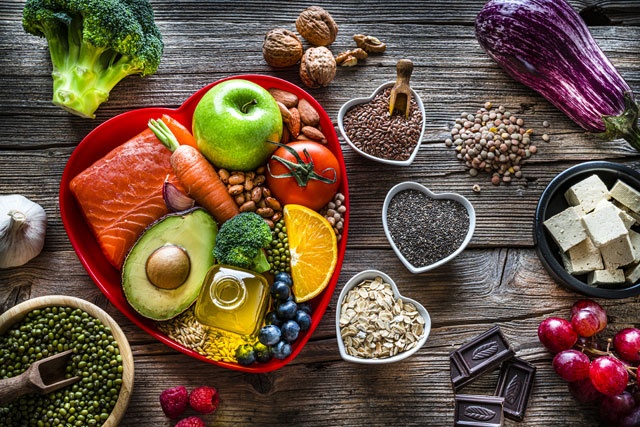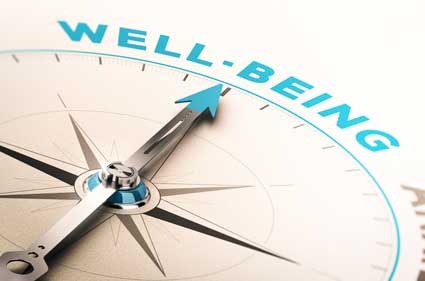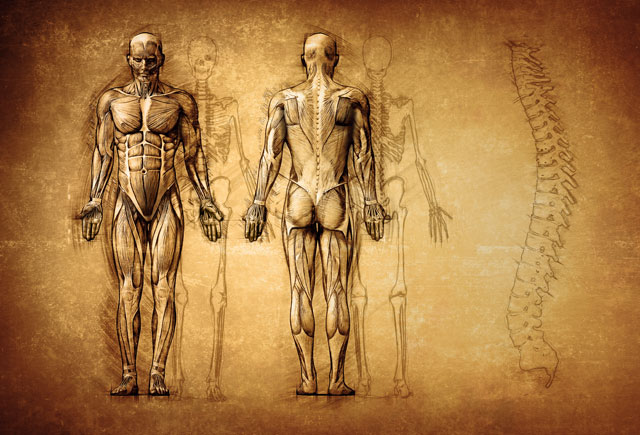Water makes up about three quarters of your body, for good reason. Water is the body's transportation and sanitation system. It maintains blood volume, regulates temperature, keeps the tissues in the eyes and mouth functioning properly, it dissolves waste products and carries them out of the body, and it delivers nutrients from food to all the body's tissues. You could live for weeks without food, but only days without any water.
How water does a body good:
- Moistens the tissues in the mouth, nose, and eyes. If you've ever had a dry mouth, chapped lips, and irritated eyes, you have felt the effects of a lack of water in body tissues.
- Regulates body temperature: when you get too warm, you produce sweat that helps your body cool itself through evaporation. A person suffering from dehydration can't produce enough sweat to keep himself cool.
- Lubricates joints: Soft tissues like cartilage hold water to cushion the movement of fingers, hips, spine, and all the major joints of your body. When you get dehydrated, these joints can feel achy.
- Removes toxins and waste products: Excess salt, too much alcohol, excessive exposure to smog and tobacco, all these unhealthy components come into your body and wreak havoc, but water facilitates the cleanup process and flushes out the harmful toxins. Having enough water in your system helps the liver and kidneys work better to keep your internal environment clean.
- Protects the vital organs: Your brain, heart, lungs, digestive system, every major system in your body relies on water for cushioning and to maintain the proper balance of electrolytes.
- Delivers nutrients: Water dissolves cellular food and oxygen and carries it all over the body through the blood stream.
- Prevents constipation: An adequate amount of water keeps stools soft and easier to move out of the body.
Whenever possible, choose a whole fruit or vegetable over a juice. As an example, an orange contains healthy fiber that makes you feel full. It also takes some effort and time to peel and eat the orange. If you just drink a glass of orange juice, you get much less fiber. It's a lot easier to drink a few hundred calories worth of orange juice than it is to eat a few hundred calories worth of whole oranges.
You may have heard the oft-repeated rule that you should drink at least eight glasses of water per day. Although many factors influence how much fluid you really need, eight cups of water per day isn't a bad place to start. You will need more fluids if you work outdoors in the heat, if you exercise frequently, if you are pregnant or nursing a baby, or if you are recovering from an illness.
In addition to the eight cups of water guideline, you can also take a look at your urine: ideally, it should be a pale yellow color. Dark yellow or brown colors indicate that the waste products are highly concentrated, which can put a strain on your system.
Other indicators that you need to drink more include dry mouth, eyes, throat or nose, and chapped lips.
Here are some tips to increase your fluid consumption.
- Train yourself to have water at certain times. Whenever you get in the car, take an insulated cup of ice water to drink along the way. Yes, you might have to stop after an hour for a bathroom break, but stopping will also give you a chance to stretch your legs and stimulate your circulation.
- Keep a bottle of water at your desk. Every time you send or receive an email, take a sip of water.
- Drink a glass of ice water while you wait for your coffee to brew in the morning.
- Drink a glass of water before each meal.
Dehydration
You lose water when you sweat, breathe, urinate, and make tears. If you aren't able to bring more water in at about the same pace it's going out, you can start to become dehydrated. Your risk of dehydration rises when you sweat profusely over a long period of time, when you have stomach illnesses (diarrhea and vomiting) that make it difficult to take in fluids, if you have uncontrolled diabetes, if you are using certain medications, and when you are away from a water source for an extended period of time.
Unfortunately, the sense of thirst that prompts us to drink can lag behind the body's actual need, so if you are feeling thirsty, the dehydration process is already in the works. In addition to thirst, you may experience dry, flushed skin, a lack of saliva, a loss of appetite, fatigue, lightheadedness, weakness, and chills.
What you drink when you feel thirsty is important; water or an electrolyte solution will hydrate you quickly and efficiently. Drinking several beers without extra water will accelerate the dehydration process.
When your fluid level drops about 5% below normal, your symptoms quickly become more serious. You may have muscle cramps, nausea, vomiting and tingling limbs. Your body temperature, breathing rate and pulse may speed up, you may be unable to sweat or produce tears, and you may experience extreme fatigue and muscle cramping.
If the situation progresses to 10% dehydration, you will require immediate medical intervention to restore lost fluids. Your muscles may spasm painfully, you could have a seizure, it will be very hard to walk, think, or communicate, your skin will become very dry and prune-like, your blood pressure will drop, and your pulse will race. At this level of dehydration, an emergency response team will usually administer intravenous fluids and observe you for a few hours.
If you aren't able to get emergency medical attention and the condition continues to progress, vital organs can begin to shut down, kidneys may fail, and in extreme cases, the person may have a heart attack.
24 hours.
Water is cheap, plentiful, and completely free of calories, flavorings, and artificial additives. It makes an excellent hydration option. However, from time to time, you might need other options. All fluids contribute to your water intake for the day, but they can also be a hidden source of unnecessary calories. You may not realize how many calories lurk in a glass of orange juice, or how many artificial flavorings are in your specialty coffee. Milk, tea, and coffee can have a place in a healthy beverage plan.
Milk. This is one of the few beverages that also has a respectable nutritional profile, it contains protein, calcium, vitamin D, and water. Milk contributes some calories to your daily profile, but it is also contributing essential nutrients. As long as you aren't lactose intolerant, milk can be a good source of liquid.
Coffee and Tea. Scientists continue to explore the health pros and cons of caffeine. Some studies show that coffee and tea provide mental and physiological health benefits. The February 2006 issue of Harvard Health Letter reported that coffee (in moderation) might have beneficial effects on blood pressure, cancer risk, cholesterol, diabetes, and, in men, Parkinson's disease.
Tea has had a great reputation for health for centuries, but the official scientific study results are only recently showing up. Tea contains antioxidants called flavonoids, including one apparently powerful group called catechins. Green tea is a great source of catechins, which have been linked to a lower risk for certain cancers and cardiovascular disease. Green tea appears to have the highest catechin content, and this liquid has an added benefit. Its naturally sweet flavor makes for a delightful treat without any added sugar or sweetener to offset the healthful effects of the tea.
There is a popular belief that caffeine causes your body to eliminate more fluid than you take in. Although studies have not clearly demonstrated that this is true, it's still a good idea not to count caffeinated beverages toward your daily fluid intake. If you are drinking several cups of coffee, tea, or energy drinks per day, you might notice anxiety, shakiness, or irritability, and if you suddenly quit caffeine altogether, you may experience horrible headaches. For this reason, you may want to limit your daily caffeine intake to one or two servings, and if you quit, do it slowly.
Whichever beverage you choose, try to steer clear of additional flavors and sweeteners. Go for plain.
Alcohol contains seven calories per gram, but it contributes zero nutritional benefit. Alcohol also requires your body to sacrifice some of its vital store of water in order to process and remove it from your system. Since it is a nutritional lightweight, you might think it best to eliminate all alcohol from your diet. However, if you enjoy the occasional glass of Syrah, there may be some health benefits: in moderation, the alcohol in wine, beer, or liquor may contribute to a reduced risk of cardiovascular disease. Moderation is a key term: it means no more than one drink per day for women, two drinks per day for men. The research on the health benefits of alcohol is not strong enough that most doctors would recommend non-drinkers start chugging, but if the occasional beer is important to you it isn't something that you should feel too guilty about, as long as you keep the overall consumption very low to avoid adding too many empty calories to your diet.































